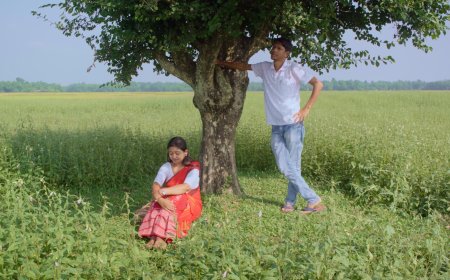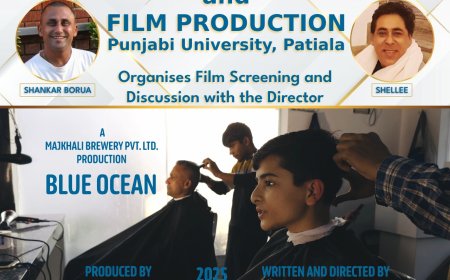Film Review: A true son of Kopili
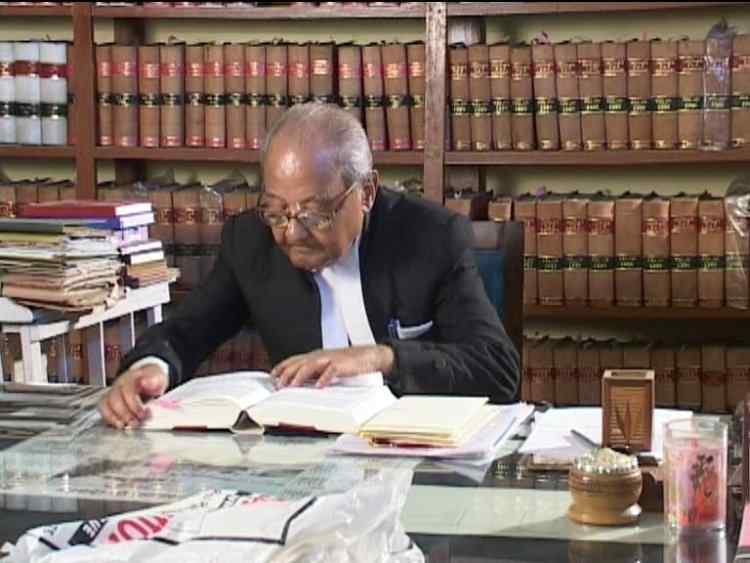
Noted film critic Prantik Deka writes on the documentary, A True Son of Kopili.
Childhood memories are closely tied to the place that one lived or frequented as a child and youth. A time once spent is irrecoverable, but it isn't hard to recollect the images of a place that one has created a deep emotional attachment to. "It was like going back many decades back in time, to go back to a place I know very well, where I used to spend a good part of my childhood years," said Pabitra Kumar Deka, eminent cine-journalist and litterateur, after watching the biographical documentary A Son of Kopili Returns, directed by Dip Bhuyan. (Sometime in August, 2009)
“Despite the fact that I had an acquaintance with Dip Bhuyan, it wasn't till late in the 90s, when my relationship with him grew a lot closer than before during the making of Munin Barua's film Hiya Diya Niya. I was the publicity consultant and Dip worked as the production controller in the super hit film. In Munin Barua's next film Nayak, I handled the same responsibility, and Dip worked as an assistant director. On the other hand, after working as an assistant with Gautam Bora in various documentaries, Dip, for some years now, is producing and directing documentaries on his own,” Deka says.
And in the meantime, Dip Bhuyan has made a name for himself with his documentaries on nature, wild life, the rich flora and fauna of the North East region. But this is his first ever documentary on a human being! Quite amusing though!
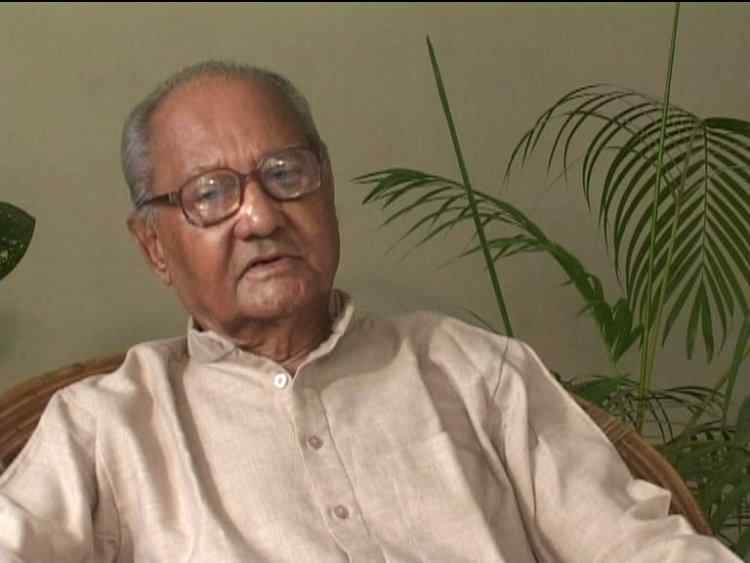
A Son of Kopili Returns starts with some breathtaking shots, from different angles, of the river Kapili – with a wide view of the sky, the camera pinpoints to a woman moving ahead along the shores of the river; someone rowing a boat in the heart of Kopili; the river water and mud provides the much needed provisions of day-to-day life to the cultivating society, people use it as their very means of livelihood and for their economic upliftment; after bathing and washing off their clothes, women folk, both married and unmarried, lug along with water-pots and wash bowls…
Reminiscing about his childhood, his adolescence and his early adult years, he continues, "At a distance, while watching a view of the raw road from above the river bank, I could remember, nay indistinctly, my childhood years several decades back, when I was studying in the late 50s. I used to ride a cycle on the road. I was terrified of riding at a high speed, even then, my pajamas tore off after it struck the tyre. After travelling in a bus to Kampur from my home in Nagaon's Haibargaon, and somehow procuring a cycle there, I would proceed to my Bordeuta's (elder brother of my father) home in Narikoli along the banks of the river Kopili. That was my father and his elder brother's ancestral home, my father Mahendra Nath Deka was born there. Right from his teens, my father's educational studies took him to Nagaon, Gauripur school to Guwahati's Cotton College and Allahabad's reputed educational institution. My Bordeuta was a volunteer of the Congress party, even spending his time in jail for service to the country, and after independence, he made his livelihood through farming. He was a very calm and dignified man. He always loved to see me there.”
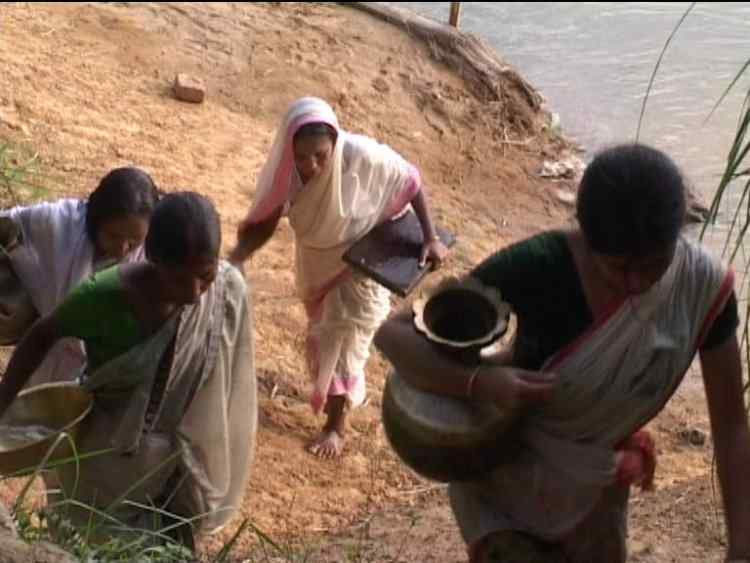
“It's the same familiar road that lies in front of Bordeuta's home, and the same vegetated bank that leads down to the river Kopili. People have made conveniences for their travels. There was a huge tree located in the area. The air is cool and calm. It just felt wonderful discussing every topic overlooking the Kopili at a distance. I had never witnessed Kopili turning violent during the monsoons. Whenever I visited the place, I had always found Kapili to be calm and quiet."
Dip Bhuyan's documentary took Deka several decades back to the lingering memories of Kopili. “While I was studying, I was deeply moved and engaged by Nabakanta Barua's maiden novel 'Kopiliparia Sadhu', depicting Kapili in its conflicting moods. I remember the book was small in size and in paperback. During that time, I came to know a lot of things about life and people in general. The chief character in the novel – Rupai, came to our place Haibargaon from the banks of Kopili. There was also the mention of the wooden bridge that connects Haibargaon above the Kolong river. But then, why did Sonpahi commit suicide in the heart of Kopili? I didn't find that aspect particularly palatable. Later, I read the novel again. Even then, I felt sad for Sonpahi. There are so many activities around Kopili."
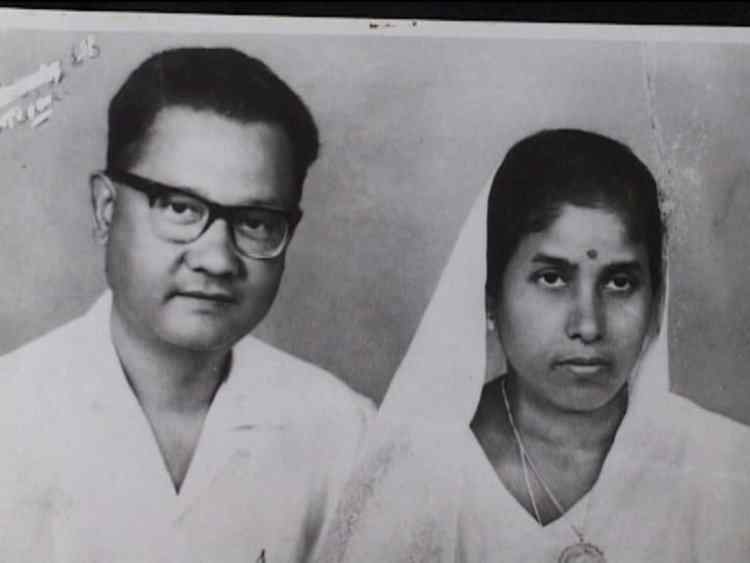
Now for the third time, he was transferred to the banks of Kopili. But then, Dip Bhuyan's documentary is not based on Kopili. It's based on a man who was born on the banks of Kopili. In fact, he was born and raised in the same village where Pabitra Kumar Deka's father had been born – Kampur's Narikoli, on July 29, 1924.
His parents were Nandeswar Bhuyan and Rajani Bhuyan. Now he is Guwahati-based. His age is near 85 years. But even now, he is most active and skilful. His name is Suchendra Nath Bhuyan, people refer to him in short as Suchen Bhuyan. As years passed, he became very famous but he has never overlooked or neglected Kopili or its inhabitants.
Dip Bhuyan wonderfully established that aspect in his documentary through some necessary location shots, a short interview with Suchendra Nath Bhuyan, commentary and soft background music. Besides Suchen Bhuyan's rise in life, we get some glimpses of our political history. Suchendra Nath Bhuyan has had an eventful life. He always stands for the causes of the poor and oppressed classes. A philanthropist in the true sense of the term, Bhuyan has worked relentlessly for the welfare of the underprivileged. He has been a generous donor, who helped build several institutions, including several educational ones at Kampur and Guwahati. His calm manner and compassionate concern for society has drawn him to countless admirers and well-wishers. Many of his friends and colleagues still fondly remember Bhuyan's great contribution as an outspoken student leader, freedom fighter and excellent lawyer. A self-made man, Suchen Bhuyan today commands respect from all quarters, and has inspired everyone around him. Director Dip Bhuyan has succeeded to a great extent in capturing the life of this great son of Kopili in his documentary that sums up in just 33 minutes and 14 seconds. Besides directing, Dip Bhuyan has also written the script, scored the background music, handled the camera and produced 'A Son of Kopili Returns' under the banner of Sanjivani Films.
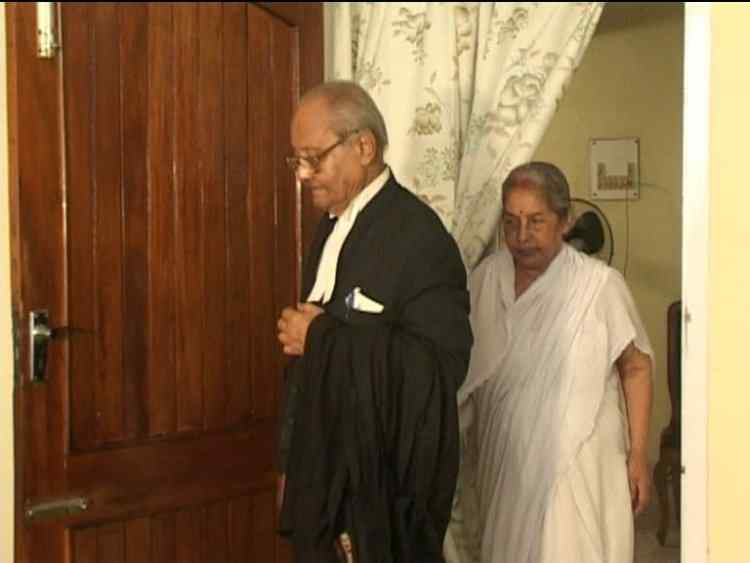
Suchendra Nath Bhuyan in short : A sharp student, Suchen Bhuyan studied in Narikoli, Kampur High School, Nagaon Govt. High School, Cotton College and Gauhati University. He completed his MA and LLB in 1955 and 1957 respectively. He participated as a student volunteer in the freedom movement in 1942. After his involvement with the student movement in 1941, he became an active member of the Communist Party after joining it in 1943. After the Communist Party was banned, he went underground from 1948 to 1951. He was arrested in 1951 and released in 1952. In 1957-58, he underwent articleship training under Fakhruddin Ali Ahmed. As a lawyer, Bhuyan joined the High Court in 1958. Bhuyan was appointed Advocate General of the State on two occasions, in 1984 and 1993, respectively. He married Subhadra Saikia in 1950. He has three daughters, Shagata, Anulekha and Jyoti, and a son Ujjal Bhuyan, a judge of the Gauhati High Court. Suchen Bhuyan has made multiple contributions as a generous donor, from the construction of the Kampur Jatiya Vidyalaya Bhawan to various other educational institutions, schools and colleges in the area of Kampur, religious homes, 'Swaraj Bhawan', various institutions, organisations, etc. He has made a number of donations to hospitals in Nagaon and Guwahati, research centres, child welfare centres, cultural organisations, etc.
The documentary ends on a poetically lyrical note that has emotional undercurrents which touch the heart strings. Suchen Bhuyan strolls along the banks of the Kopili. In the background, the scene complements with the renowned artists, late Dilip Kumar Sarma and Sudakshina Sarma singing an Assamese translation of Rabindra Sangeet: "Purono sai diner kotha..".
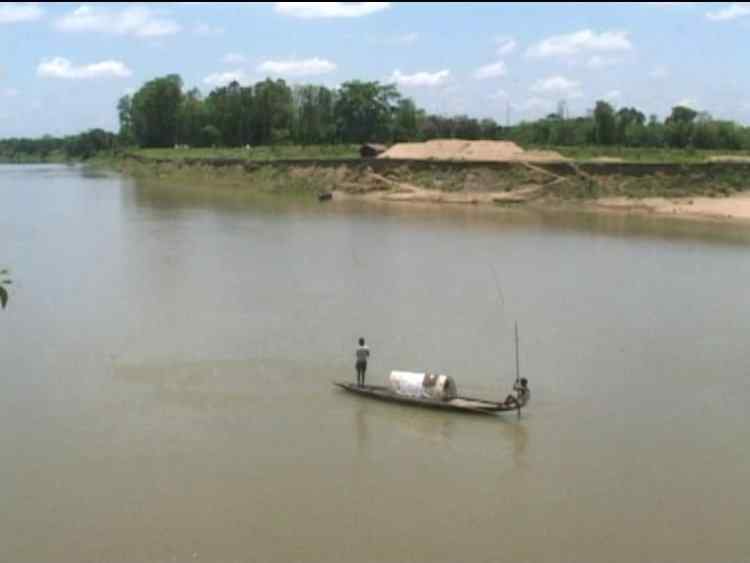
Pabitra Kumar Deka was joined by two youths of the present generation while he was watching the documentary. "After avidly watching the biographical documentary along with me, one of the youths said : 'If only we'd have five such persons in our constituency, Assam will see a lot of prosperity.' The other youth asked : 'Was he honoured with the Padmashree?' Then he himself said : Not Padmashree, he deserves Padma Bhusan'. There was a brief silence before they both belted out, 'Just so shame that this man's being ignored.' I think the reactions from these new generation youths after watching the documentary is ample proof that Dip Bhuyan has succeeded in making a moving and convincing documentary. But it is felt that the tremendous contribution made by this honest man of letters to India's freedom movement and other social causes is yet to be properly explored, and duly recognised by the present generation today." This great son of Kopili is unique and exemplary in his own way.
The narration of 'A Son of Kopili Returns' has been done by Haseem Ahmed. The film's commentary text and subtitles are written by Suresh Kumar Nath and Merry Baruah. Camera assistants are Mukul Bora and Iqbal Ahmed. Edited by Simanta Shandilya, the music arrangement has been done by Bijoy Bhuyan.
***
What's Your Reaction?





















































